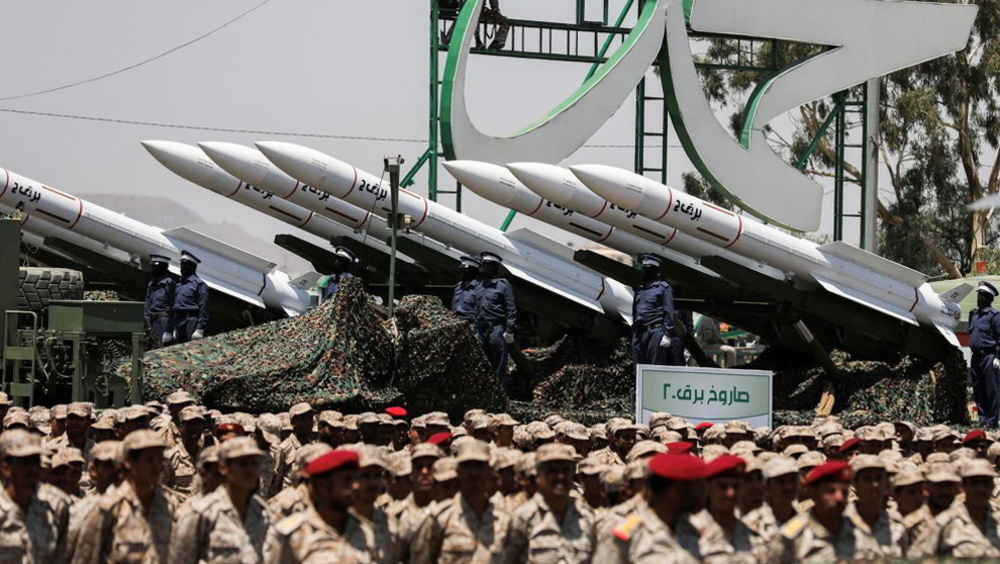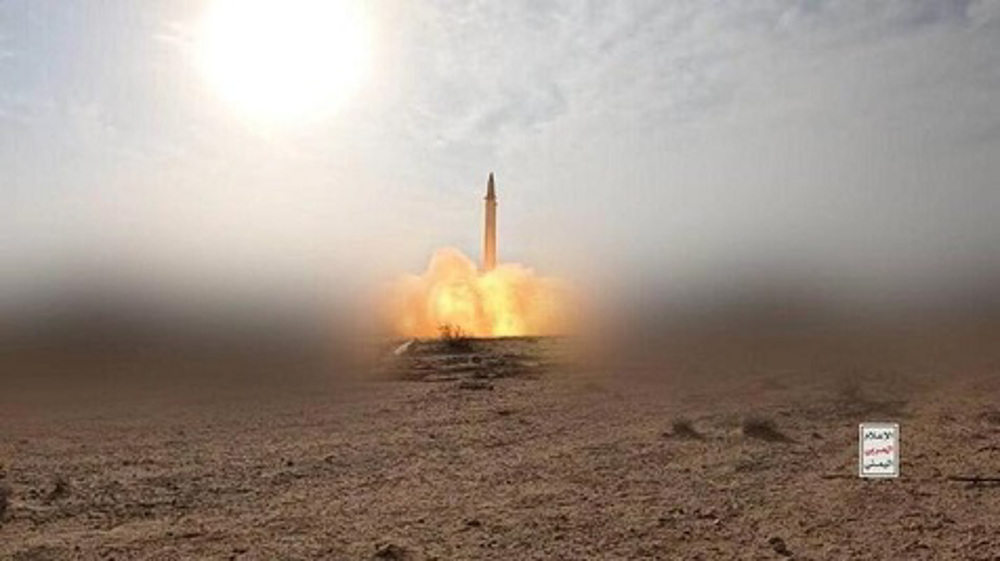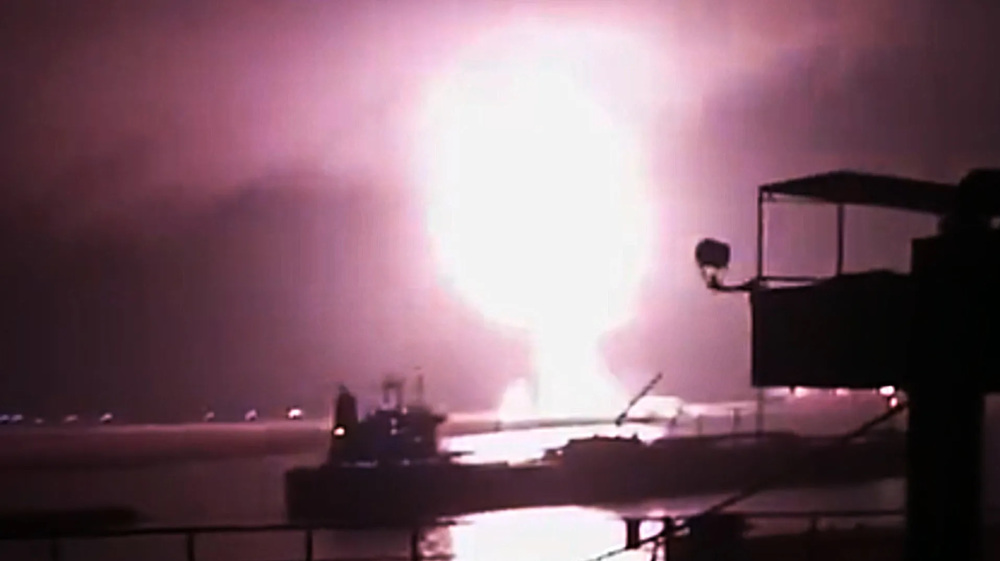US attacks on Yemen triggering widespread oil spill, environmental hazards for region, warn officials
Yemeni officials say the repeated US military airstrikes on the Arab Peninsula country are triggering a large-scale oil spill in the Red Sea, issuing a stark warning about an imminent environmental disaster for the whole region.
The officials said the daunting prospect could unleash catastrophic consequences for the fragile marine ecosystem and global trade.
According to the authorities, US attacks on critical civilian infrastructure had severely damaged oil facilities along the Yemeni coast, particularly the Ras Isa oil terminal in the western province of al-Hudaydah.
The officials warned that the infrastructure had been pushed to the brink of collapse, heightening the danger of massive oil leakage into the Red Sea "at any moment."
In a letter to the United Nations, Yemeni Foreign Minister, Jamal Amer stated that nearly 1,000 US airstrikes had struck Yemen since March, leading to the destruction of ports, airports, farms, healthcare facilities, water reservoirs, and historical sites. He emphasized that the attack on Ras Isa alone had also resulted in the death of 80 civilians and injuries to 150 others.
"The United States bears full responsibility for the grave environmental and humanitarian consequences that may follow," he said in the letter.
'Severe threat' to Red Sea ecosystem
The Red Sea, home to some of the world's most biodiverse coral reefs and marine life, faces extreme ecological peril if a spill occurs, experts note.
Oil derivatives spread rapidly across the water's surface, forming a suffocating layer that blocks oxygen and devastates fish, seabirds, and other wildlife.
Environmental specialists note that the region's coral reefs, already stressed by climate change, are particularly vulnerable to oil pollution. Damage to these reefs would collapse the local food chain and cause irreversible harm to one of the planet’s most critical marine habitats, they underline.
'Global implications'
Economists, meanwhile, warned that the Red Sea serves as a vital artery for global trade, with approximately 12 to 15 percent of worldwide shipping passing through the Suez Canal.
A major oil spill would not only trigger ecological catastrophe, but also disrupt maritime traffic, push oil and gas prices higher, and escalate political tensions internationally, they underscore.
Furthermore, studies warn that a large-scale spill could shut down major ports like al-Hudaydah, which is Yemen' lifeline, halt up to 85 percent of regional fishing activities within weeks, and cut off access to fresh water for as many as eight million people, deepening Yemen's already dire humanitarian situation.
The United States has, itself, admitted to striking over 800 targets across Yemen since mid-March under its so-called Operation Rough Rider, authorized by President Donald Trump to deal “overwhelming lethal force” to the country.
The operation, which markedly intensified the US aggression against Yemen, went underway as part of Washington’s efforts to stop Yemeni Armed Forces’ strikes against Israeli targets.
The Yemeni strikes have been taking place in support of the Gaza Strip since October 2023, when the Israeli regime began a war of genocide against the coastal sliver.
They have been targeting sensitive and strategic Israeli military targets as well as Israeli and Israeli-linked ships taking supplies to the Israeli regime through the Red Sea, the Bab el-Mandeb Strait, and the Arabian Sea.
The Yemeni forces have, meanwhile, repeatedly declared that they would not pose any danger to the vessels that do not carry commodities to the regime.
The US Central Command (CENTCOM) has, however, alleged that the American attacks aimed to “restore” freedom of navigation in the Red Sea and Gulf of Aden, trying to accuse the Yemeni forces of entirely disrupting maritime travel there.
The CENTCOM also alleges that it has killed “hundreds” of Yemeni servicemen and senior officials, and destroyed significant military infrastructure. Sana’a has, nevertheless, reported on many occasions that the aggression has been striking purely civilian targets.
Yemeni sources, including the country’s al-Masirah network, have documented repeated US airstrikes on civilian areas, including in the capital, where dozens of civilian casualties have been reported.
Call for urgent international action
Yemeni officials have urged the international community, particularly the UN, to act swiftly to prevent further escalation and avert a full-blown environmental catastrophe.
They stressed that de-escalation, diplomacy, and a ceasefire were urgently needed to protect the Red Sea’s environment, ensure the safety of global trade routes, and safeguard the livelihoods of millions in Yemen and the broader region.

Red Sea debacle: How Yemeni resistance brought American war machine to a halt

Yemen warns Israeli airports ‘unsafe’ as two hypersonic missiles target Ben Gurion

As Yemeni missile hits occupied territories, Ansarullah says Israel ‘only understands this language’
Pezeshkian: Deal 'within reach' only if US stops bullying tactics
Iran says ‘ready’ for win-win interaction if sanctions terminated
VIDEO | Pope Leo XIV's inaugural Mass draws global leaders, religious delegations
VIDEO | Press TV's news headlines
Israel killed 219 Palestinian journalists in Gaza in 19 months
VIDEO | TDF 2025 kicks off in Tehran
Tehran strongly protests detention of Iranians in UK
Biden diagnosed with ‘aggressive form’ of prostate cancer










 This makes it easy to access the Press TV website
This makes it easy to access the Press TV website